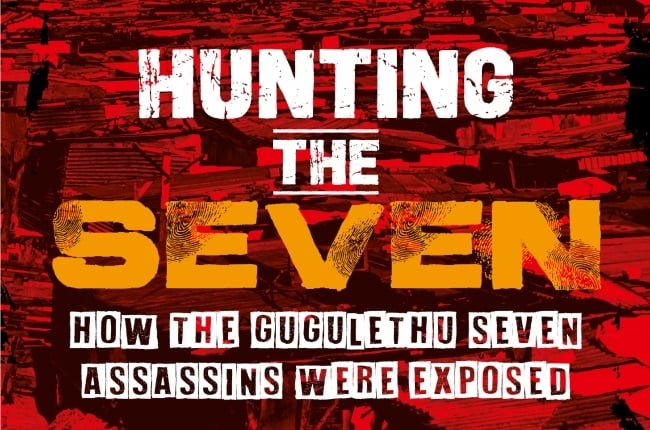
The sky was clear and calm on that late-summer morning. The leaves on the giant bluegum trees barely fluttered as they loomed over the main intersection at the entrance of the dusty township of Gugulethu.
It was 7.20 am and the surrounding dirt streets were quiet. Those with jobs in this 62 000-strong black township had already left for work much earlier, walking through the dawning light to the railway station to reach their destinations in the affluent business centres and suburbs closer to the striking cut-out silhouette of Table Mountain, about fifteen kilometres distant – so near, yet so far.
Suddenly, there was a loud explosion, terrifying those nearby. Those still at home feared an apocalypse had arrived, so great was the volume of sound as the shots and ratt-a-tat-tatting streamed on. They crouched low, for experience had taught them that thin corrugated-iron walls did not stop bullets.
The terrifying salvo of shooting ceased, replaced immediately by yelling, running, engines roaring. Then more gunfire. Some single shots. In a few minutes, it was over.
Seven bodies lay scattered across the dry ground.
The lifeless bodies were not all grouped together. Four lay close to a pair of almost identical white vans at the intersection of the NY1, the main road leading into the shabby township. The other three dead men lay at a distance: one on the dry scrubby veld in front of a facebrick hostel, two others hidden in the bushes further away – they had been running for their lives.
Baffled and traumatised onlookers gathered, but were forced back by another oddity in this bizarre scene – a very senior police presence, with many heavy vehicles in this normally underpoliced township.
Police shootings were frequent in Cape Town’s townships, but this was unprecedented: large, violent, very public.
***
Read more | BOOK REVIEW | Upstart by Alexandria Procter, founder of DigsConnect
After the police had swept away the pools of blood in the street, after the bodies had been filmed, and manhandled, and hauled away to the indifferent attentions of the state mortuary in Salt River, a stunned crowd formed while helicopter blades clattered overhead.
Later that morning, the press began to arrive. Some of them were welcomed: they were from pliable news sources sympathetic to the apartheid government, and could be relied on to quickly feed out the official version – that seven heavily armed young black men had been planning to ambush a police van arriving at a nearby police station.
Others were not welcome, and were coldly eyeballed.
Tame radio stations began, later that morning, to carry a puzzling story about several communists or Russians or terrorists – this interchangeable mix was commonplace – shot dead in a fierce gun battle with the police, who had apparently foiled a dangerous urban ambush. Some families of
the victims heard this sensational story but ignored it, not imagining that it was their own who were affected. They had no reason to.
Were there any witnesses? There were, despite careful precautions.
The police contingent had had the advantage of an empty, morning-quiet street in Gugs, as the township is known: the timing was well chosen. But for those in power, that mattered very little: any possible witnesses were black. Crudely put, this meant they could be intimidated, threatened,
even arrested under the statutes governing police action. They could be disappeared. They had no voting rights; they had no rights at all, in any meaningful sense of the word. Few in positions of influence would believe their word against any white official’s.
In any case, the apparent circumstances of this high-profile event were entirely suspicious and dangerous: what were seven heavily armed young black men doing there that morning, other than planning to ambush a police van? What a persuasive narrative this was.
This is an edited extract from Hunting the Seven: How the Gugulethu Seven Assassins were Exposed by Dr Beverley Roos-Muller (published by Jonathan Ball Publishers). Dr Roos-Muller is a veteran journalist, broadcaster and former academic lecturing in humanities at the University of Cape Town. She was an anti-apartheid activist in the 1980s, including spokesperson for the multi-organisational Open City campaign opposing the Group Areas Act.
She is also the author of Bullet in the Heart.



















